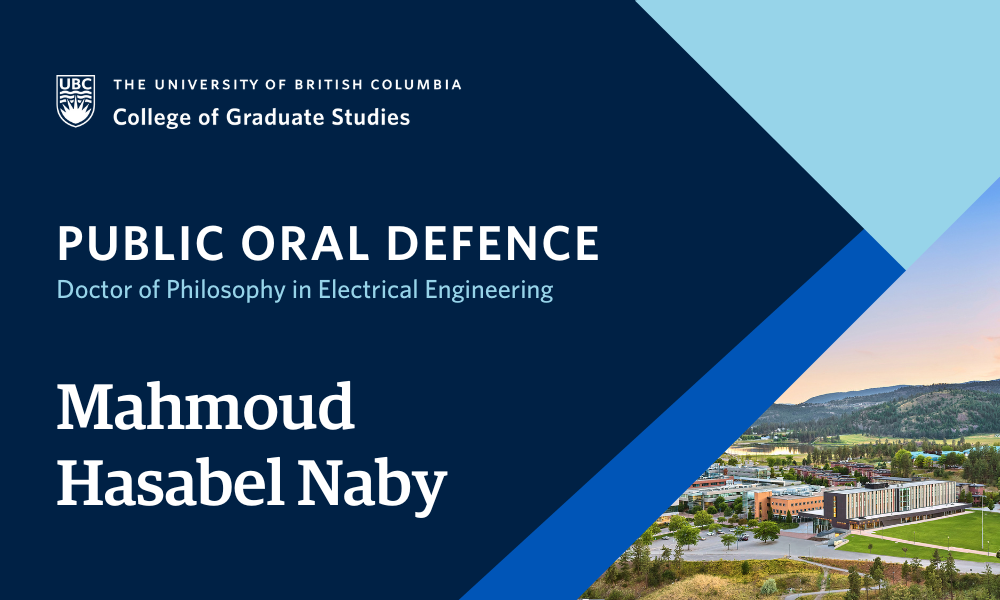
- This event has passed.
Dissertation Defence: Improving the performance of Distributed Antenna Systems using multi-pair computation schemes
December 14, 2023 at 9:30 am - 1:30 pm

Mahmoud Hasabel Naby, supervised by Dr. Anas Chaaban, will defend their dissertation titled “Improving the performance of Distributed Antenna Systems using multi-pair computation schemes” in partial fulfillment of the requirements for the degree of Doctor of Philosophy in Electrical Engineering.
An abstract for Mahmoud Hasabel Naby’s dissertation is included below.
Examinations are open to all members of the campus community as well as the general public. Registration is not required for in person defences.
ABSTRACT
The rapid evolution of wireless communication networks demands evolved radio access network (RAN) architectures that can support massive connectivity and deliver high data rates. Collaborative signal processing, as seen in distributed antenna systems (DAS), is a promising approach, demonstrated by paradigms like Cloud RAN (C-RAN), Fog RAN (F-RAN), Cell-Free Massive MIMO (CF-mMIMO), and Open RAN (O-RAN). However, the effectiveness of DAS networks is constrained by the limited capacity of fronthaul links, connecting distributed antenna terminals to the central processing unit (CPU). This calls for the development of advanced signal processing and relaying techniques for efficient utilization of fronthaul links in both uplink and downlink transmissions.
This thesis makes a significant contribution by introducing a novel end-to-end multi-pair two-way computation paradigm tailored for DAS. It advocates a joint design approach for uplink and downlink transmissions, taking into consideration the source-destination message information. This idea is demonstrated in this thesis through a pairwise message exchange paradigm among communicating users in the DAS, emphasizing the optimization of end-to-end spectral and energy efficiency. A lattice-based computation approach is adopted, wherein each antenna terminal quantizes its observed signal and transmits it to the CPU. The CPU decodes integer linear combinations of paired users’ codewords, rather than linear combinations of individual codewords. The computed signals are then beamformed, compressed, and forwarded to the distributed antenna terminals, which subsequently decompress and transmit them to the users. This approach is applied in various scenarios, including C-RAN with intra-cloud communications and combined intra and inter-cloud scenarios, assuming perfect channel state information (CSI) and considering both real and complex-valued channel models.
To address sensitivity to CSI estimation errors, a robust end-to-end multi-pair computation scheme is proposed to optimize energy efficiency under imperfect CSI, particularly relevant in CF-mMIMO networks due to their ‘massive’ nature. Additionally, to further alleviate communication overhead over limited-capacity fronthaul links, a distributed multi-pair computation scheme is introduced, wherein the computation of certain user-pair codewords is to be offloaded from the CPU to the distributed antenna terminals.
The effectiveness of these proposed frameworks is rigorously evaluated through theoretical derivations and numerical simulations, demonstrating their superiority over state-of-the-art schemes.